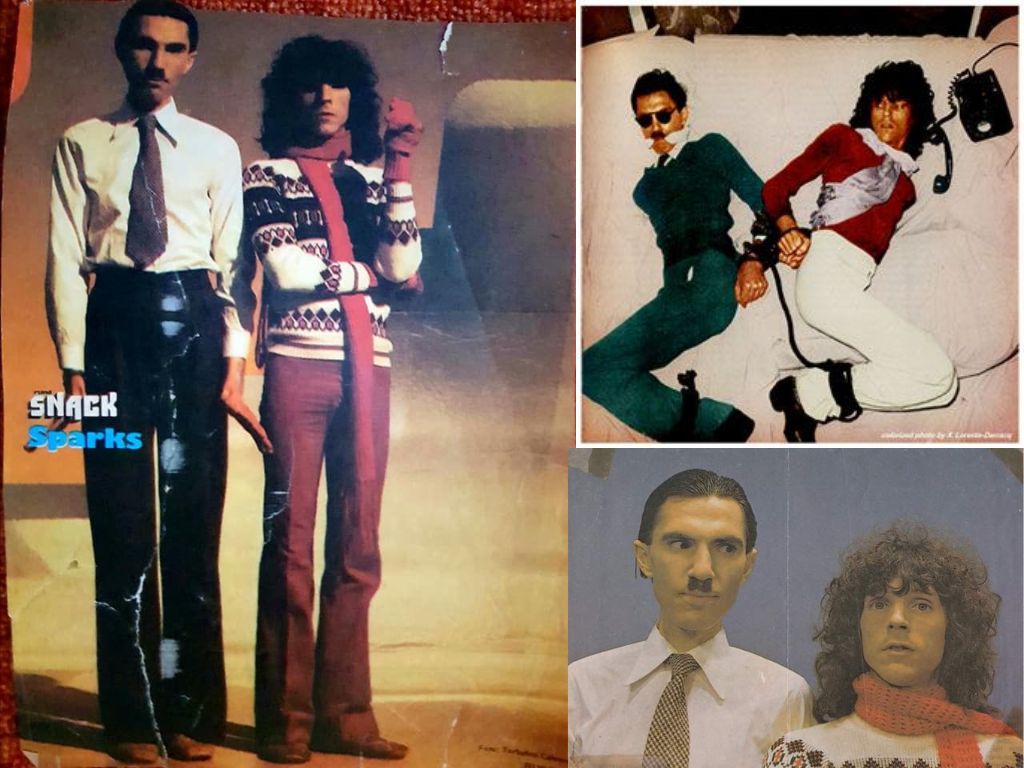
“This Town Ain’t Big Enough for Both of Us”: A Theatrical Masterpiece of Love, Conflict, and Lofty Ambition
Ah, the 1970s. A decade of seismic shifts, not just in society, but in the very fabric of popular music. Amidst the burgeoning sounds of glam rock, progressive rock, and disco, a peculiar and utterly captivating duo emerged, ready to challenge every convention: Sparks. And perhaps no song encapsulates their audacious spirit quite like “This Town Ain’t Big Enough for Both of Us”. This wasn’t just a song; it was a miniature opera, a three-minute, three-second explosion of dramatic tension, soaring vocals, and an unforgettable narrative. Released in 1974 as the lead single from their groundbreaking album, “Kimono My House”, it rocketed up the UK charts, peaking at an impressive Number 2. For many of us who were coming of age then, it was an inexplicable, yet utterly compelling, presence on the airwaves, a stark contrast to the often more straightforward pop offerings of the time.
The genius of “This Town Ain’t Big Enough for Both of Us” lies not just in its musicality, but in the theatricality woven into every note and lyric. This wasn’t a song about a simple lovers’ quarrel; it was a grand, almost absurd, confrontation. The lyrics, penned by the inimitable Ron Mael, paint a vivid picture of a relationship pushed to its breaking point, not by infidelity or neglect, but by a clash of egos so monumental that the very world around them seems too small to contain it. The titular line itself is a declaration of this colossal conflict, hinting at a Western standoff where only one can emerge victorious, yet twisted into the context of a romantic entanglement. It’s a deliciously dark humor that was a hallmark of Sparks’ early work.
The story behind the song, much like the band itself, is steeped in a kind of avant-garde mystique. Sparks, comprised of brothers Ron and Russell Mael, had already cultivated a reputation for their eccentric stage presence and intelligent, often sardonic, songwriting. When they arrived in the UK, having already released a couple of albums stateside with limited success, they were ripe for a creative blossoming. “Kimono My House” was the album that truly launched them into the public consciousness, and “This Town Ain’t Big Enough for Both of Us” was its explosive calling card. Producer Muff Winwood played a crucial role in honing their sound for a wider audience, yet never compromising the unique vision of the Mael brothers. The song’s distinctive falsetto vocal performance by Russell Mael, a voice that could soar to operatic heights and plummet to whispers within the same phrase, became an instant hallmark. It was a vocal delivery that was both undeniably powerful and, at times, almost comically over-the-top, perfectly mirroring the dramatic tension of the lyrics.
Beyond the immediate narrative of the feuding lovers, the song can be interpreted on multiple levels. It speaks to the inherent struggle for individuality within a partnership, the push and pull between two strong personalities, each vying for their own space and identity. The “town” can be seen not just as a literal place, but as the emotional landscape of the relationship itself, a confined space where two ambitions collide. For some, it might even reflect the artistic struggle, the internal battle for creative dominance, or the difficulty of two distinct visions coexisting. This multi-layered meaning is what has given the song such enduring power, allowing it to resonate with listeners across generations.
The production of the track was meticulous, showcasing a masterful blend of rock energy and orchestral flourishes. The insistent, almost marching rhythm, the crisp guitar work, and the unexpected shifts in tempo and dynamics all contribute to the song’s theatrical impact. It built to a crescendo that felt both inevitable and thrilling, leaving the listener breathless. When “This Town Ain’t Big Enough for Both of Us” hit the airwaves, it was unlike anything else. It challenged expectations, it demanded attention, and it carved out a unique niche for Sparks in a crowded musical landscape. For those of us who remember hearing it for the first time, it was a moment of pure, unadulterated musical revelation, a song that, much like the relationship it describes, refused to be confined by conventional boundaries. It remains a timeless classic, a testament to the enduring power of artistic daring and a reminder of a truly golden age of musical innovation.